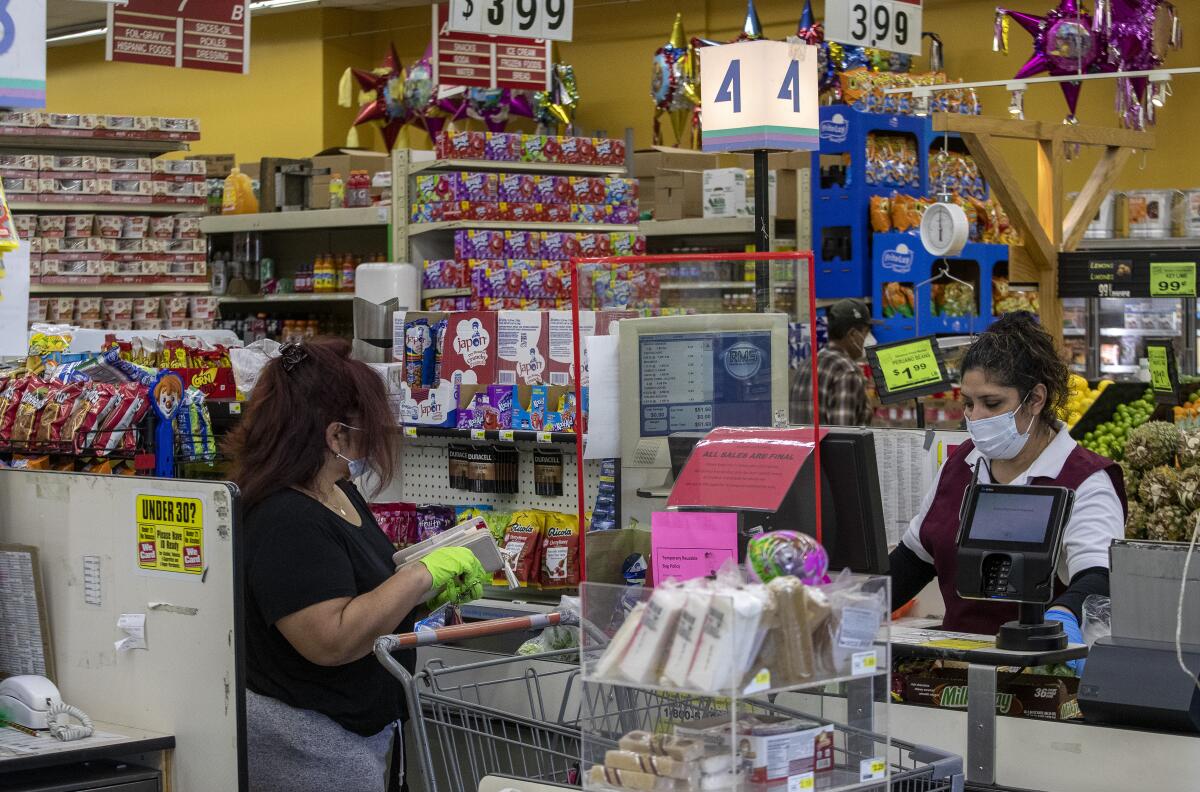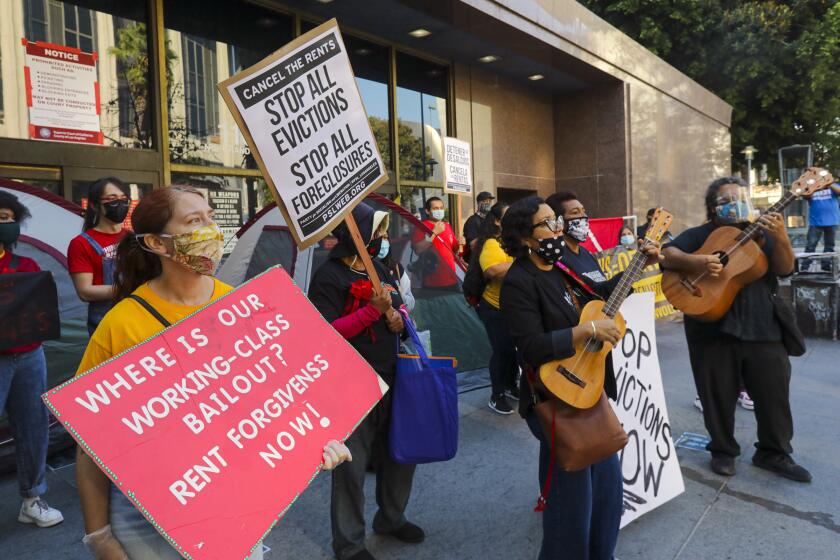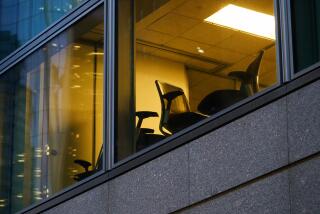If this pandemic has taught us anything, it’s that workers are essential

- Share via
The nation has learned a lot of new words and phrases this year. Coronavirus. Contact tracing. Social distancing. Mask up. And, of course, essential workers, who have taught America just how much we depend on one another to conduct our daily lives. And, often, how much we take for granted the work of others.
Labor’s front lines during the pandemic have been held primarily by healthcare workers — doctors, nurses, support staff and ambulance crews, to name a few of the people toiling in local physicians’ offices, clinics, hospitals, group homes and nursing facilities for the old and the infirm. It is risky work, and the importance of those jobs has long been publicly recognized. But the essential work done in other parts of the economy often has been overlooked, and in some cases looked down upon.
So a possible fringe benefit of this viral onslaught might be that it is forcing more people to recognize how the economy works, and to see how seemingly minor jobs can be crucial parts of vast and intricate systems that produce energy, grow and distribute food and maintain pharmaceutical supply chains. They’re also necessary to inform and communicate (this newspaper’s employees fall under government definitions of essential), to operate transit systems and to provide child care. They’re vital to maintain buildings and to keep the water and sewer systems running. And on and on and on.
On this Labor Day, the first since the COVID-19 pandemic disrupted our daily rhythms, we should take a few minutes to reflect on how much work each day goes into keeping America running. But it also is a good time to reflect on how essential pretty much any type of work is to our individual lives. The significance of work — and especially a paycheck — has been etched into the psyches of tens of millions of people who lost jobs since the pandemic began, and who even with government help have found it difficult if not impossible to pay for the basic needs of human existence — food, shelter and clothing.
No one knows how all of this is going to play out over the next few months. Will we have a successful and safe vaccine? Will the annual scourge of the seasonal flu conspire with COVID-19 to make this coming winter deadlier than usual? Will we suffer another economic shock from another shutdown, as elected officials strike a necessary but extremely costly balance of interests — sacrificing quality of life and even livelihoods to keep as many of our fellow human beings alive as we possibly can?
This weekend usually is marked by parades and picnics as dual celebrations of the work that we do and the summer that’s ending. Not so this year. We are warned to stay away from each other, to effectively barbecue in isolation — the Zoom Grill is open — and we will be wise to follow those directives. But we can still celebrate labor. In fact, we share something of a moral duty to acknowledge the labor of so many people who have kept us going in the face of a nasty and too-often deadly infection.
The Trump administration’s ban on evictions is unprecedented, sweeping and desperately needed.
How to recognize that labor is not so clear, however. In a more humane system we would pay the people who do the essential work what those jobs are worth to society rather than treating them like just another cost in a business plan. But in this society we tend to reward celebrities, Wall Street risk-takers and corporate CEOs with inordinate amounts of wealth that bear little if any relation to how hard it would be to get along without them. In this system, we don’t signal the value of a job by how much we pay people to do it. Otherwise the salary tables would have been turned generations ago.
We ought to find a better way to do things. We have learned the lesson that in a time of crisis we rely on essential workers to protect us, to help us, to see us through. There are many more people performing such work than most people realized before this deadly coronavirus began dancing among us. But we’re also learning anew just how central work is to the lives of most of us, not just to support a standard of living, but to add another sense of purpose to human existence — and, it turns out, another way to connect our individual lives to each other.
More to Read
A cure for the common opinion
Get thought-provoking perspectives with our weekly newsletter.
You may occasionally receive promotional content from the Los Angeles Times.







